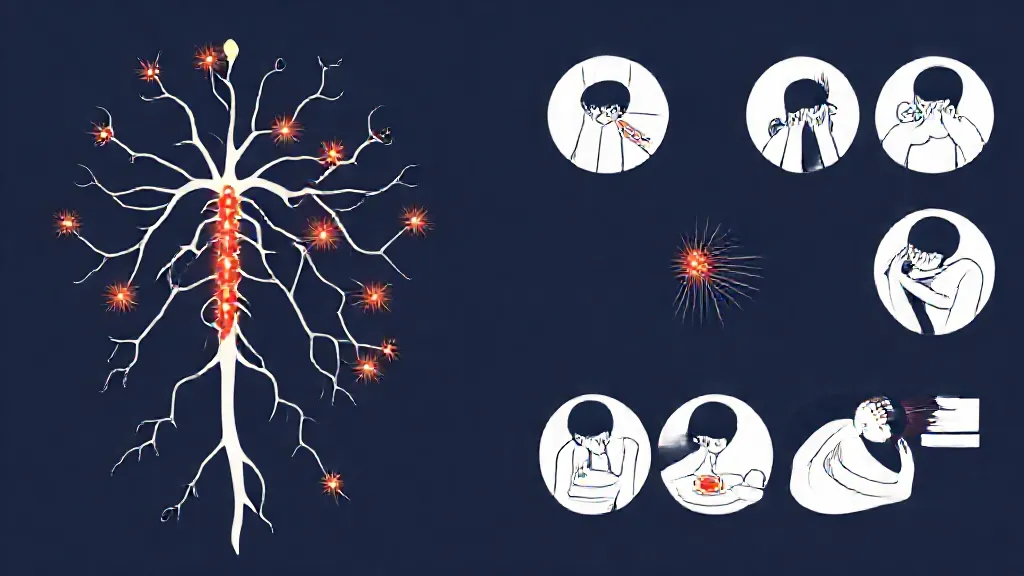Pain is a complex and multifaceted experience that serves as a crucial signal for the body, alerting us to potential harm and encouraging protective behaviors. Understanding why we feel pain in certain conditions requires a deep dive into the biological, psychological, and social aspects of pain perception. This article will explore the mechanisms behind pain, the types of pain, and the factors that influence our pain experiences.
The Biological Basis of Pain
At its core, pain is a sensory experience initiated by the nervous system in response to harmful stimuli. When tissues are damaged, they release chemicals that activate pain receptors known as nociceptors. These receptors are located throughout the body, particularly in the skin, muscles, and internal organs.
Once activated, nociceptors send signals through peripheral nerves to the spinal cord and then to the brain, where the sensation of pain is processed. This biological pathway is why we often feel pain in specific conditions, such as injuries or inflammation.
Types of Pain: Acute vs.
Chronic
Pain can be categorized into two main types: acute and chronic. Acute pain is typically a direct response to an injury or illness, serving as a warning signal that something is wrong. It usually resolves once the underlying issue is treated.
In contrast, chronic pain persists beyond the expected time of healing, often becoming a condition in itself. Chronic pain can arise from various factors, including nerve damage, psychological conditions, and even lifestyle choices. Understanding the difference between these types of pain is essential for effective management and treatment.
The Role of Psychological Factors
Psychological factors play a significant role in how we perceive and respond to pain. Conditions such as anxiety, depression, and stress can amplify the sensation of pain, making it feel more intense. Conversely, positive emotions and mental well-being can help mitigate pain perception.
Research has shown that cognitive-behavioral therapy and mindfulness practices can be effective in managing pain by addressing these psychological aspects. This interplay between mind and body highlights the need for a holistic approach to pain management.
Social Influences on Pain Perception
Our social environment can also influence how we experience pain.
Cultural beliefs, social support, and even socioeconomic status can shape our understanding and response to pain. For instance, individuals from cultures that view pain as a natural part of life may report different pain experiences than those from cultures that emphasize the need for immediate medical intervention. Additionally, strong social support networks can provide emotional comfort and practical assistance, reducing the perception of pain.
The Impact of Genetics on Pain Sensitivity
Genetics can also play a role in pain perception. Research has identified specific genetic markers associated with heightened pain sensitivity and susceptibility to chronic pain conditions. For example, variations in genes related to the production of neurotransmitters and pain receptors can influence how individuals experience pain.
Understanding these genetic factors may lead to personalized pain management strategies in the future.
Pain in Specific Medical Conditions
Certain medical conditions are known to cause specific pain experiences. For instance, fibromyalgia is characterized by widespread musculoskeletal pain, while conditions like arthritis lead to joint pain and inflammation.
Understanding the underlying mechanisms of these conditions can help in developing targeted treatments. For example, anti-inflammatory medications are often prescribed for arthritis to reduce pain and swelling, while fibromyalgia may be managed with a combination of medications and lifestyle changes.
The Future of Pain Management
As our understanding of pain continues to evolve, so too do the approaches to managing it.
Advances in neuroscience, psychology, and genetics are paving the way for more effective pain management strategies. Innovative treatments such as neuromodulation, which alters nerve activity through targeted electrical stimulation, and personalized medicine are becoming more prominent. These advancements hold the promise of providing relief for those suffering from chronic pain conditions.
Conclusion: The Complexity of Pain Perception
In conclusion, the experience of pain is a complex interplay of biological, psychological, and social factors. By understanding why we feel pain in certain conditions, we can better address and manage this often debilitating experience. Ongoing research is essential to unravel the intricacies of pain and develop more effective treatments that cater to individual needs, ultimately improving the quality of life for those affected by pain.
